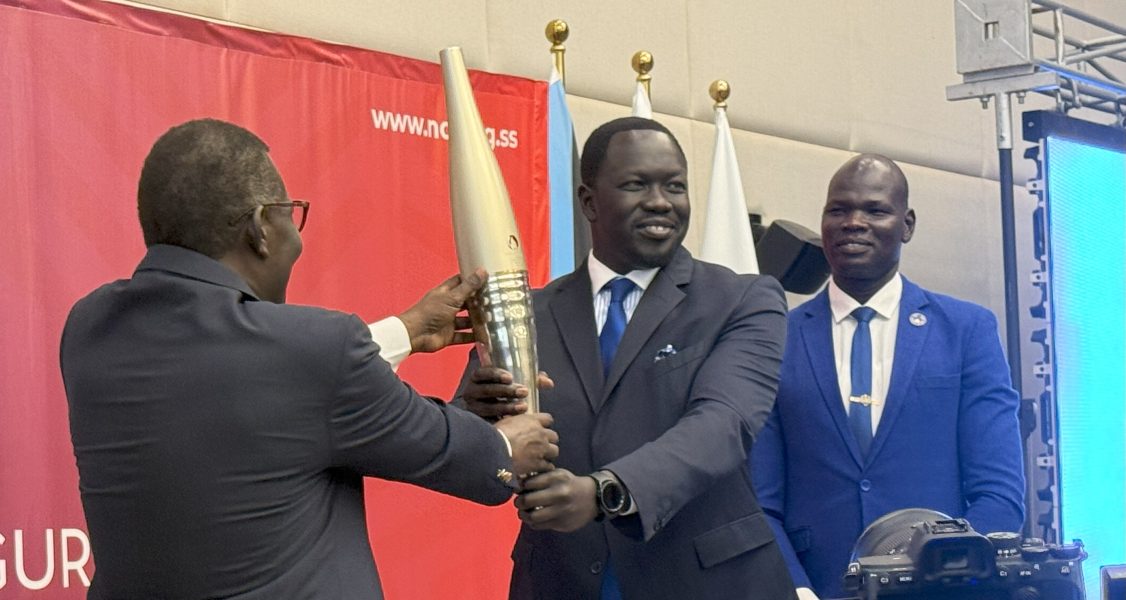
South Sudan’s sporting ambitions entered a new chapter on Wednesday as Chuol Lam Gai was sworn in as President of the South Sudan National Olympic Committee (SSNOC), pledging to usher in “great change and glories” for the nation’s athletes.
In his speech in Juba, Lam said his election reflected the country’s democratic culture and the resilience of its sports leaders.
“I was not forced to be here, but I chose to be here. I stand before you today as your servant,” he told the packed hall.
The former basketball player, who once carried a flag “that wasn’t even up yet,” promised to build on the sacrifices of outgoing leaders who he said laid the foundation “with sweat, sacrifice, and personal resources.
Despite persistent financial challenges, Lam struck a tone of optimism:
“We may lack funding, we may lack support, and we may even be criticized, but we will turn the page now. I will work day and night to make South Sudan proud. Even the Winter Olympics will know about South Sudan,” he said.
Vice President Rebecca Nyandeng delivered an impassioned tribute to athletes, praising them for uniting the country beyond politics.
“When our athletes compete, there is joy in every village, every town, every home,” she said to loud applause.
Calling sport, a “language of healing,” Nyandeng urged the outgoing SSNOC leaders to share their experiences with the next generation.
She also appealed to the Committee to create pathways for diaspora athletes to represent South Sudan.
“Our basketball stars have carried our name proudly. Let us give every South Sudanese child, at home or abroad, a chance to compete under our flag. I pledge my personal support to this Committee,” she added.
Youth and Sports Minister Mary Nawai Martin congratulated the new SSNOC leadership, describing the inauguration as proof that South Sudan is ready to fully embrace the global Olympic movement.
She laid out a practical roadmap for the sector’s growth: grassroots programs, school-based competitions, coach training, and the construction of modern facilities.
“Your work must be guided by the Olympic principles of excellence, friendship and respect — anchored in transparency, equity and integrity,” she stressed.
Nawai reminded the audience that the value of sport lies not only in medals but in building unity and character. Gesturing to the dancers at the event, she added:
“Sports unite people, as you have seen from the dancers here, they are from different tribes. Let us learn from them.”
The inauguration, held under the theme “Building for Our People, Serving Our People, Uniting Our People through Sports,” blended pride and ambition.
Cultural performances and a sea of flags underscored the spirit of unity in diversity, as athletes, government officials, diplomats, and sports administrators looked on.
For many, the event was more than a leadership transition, it was a statement that sport remains one of South Sudan’s strongest tools for healing and national pride.
With Lam at the helm, the SSNOC now faces the challenge of turning words into action: nurturing grassroots talent, upgrading facilities, empowering coaches, and giving athletes the platform to shine globally.
For fans, athletes, and officials, the message was clear: South Sudan’s Olympic dream is alive, and expectations have never been higher.

